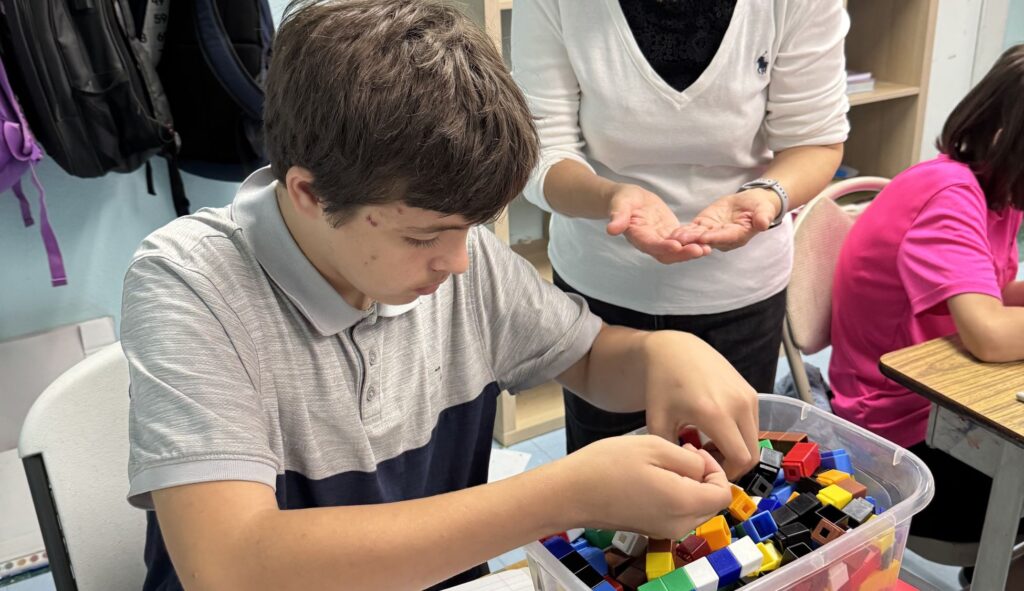
The Montessori Method, pioneered by Dr. Maria Montessori, is a child-centered educational approach grounded in the scientific observation of children throughout their development. Dr. Montessori’s educational approach enjoys a rich history of global success, having been implemented for over 100 years. This method prioritizes the holistic development of the child, encompassing physical, social, emotional, and cognitive growth, and values the human spirit.
Central to the Montessori method is the fundamental principle that children learn most effectively through self-directed exploration and meaningful environmental engagement. Dr. Maria Montessori’s pedagogical approach features student-led learning within multi-age classrooms and emphasizes hands-on exploration. Beyond the surface, however, lies a deeper goal–to equip students with the critical skills of critical thinking, collaboration, creativity, and communication. These four Cs are fundamental leadership tools in the 21st century.
Given the growing interconnectedness and complexity of the global landscape, the emphasis on rote learning and individual achievement in traditional education no longer prepares students for the future. The hallmark of Montessori education is its cultivation of a learning environment where the Four Cs are integrated into the educational process. This method prepares students to be more than just participants; it cultivates them to become innovators and leaders who actively shape the future.
Critical Thinking
The foundation of critical thinking within the Montessori method is the encouragement of curiosity and questioning. The curriculum cultivates students’ abilities to critically evaluate information, construct inquiries, and explore a range of potential solutions. Through this foundation, students cultivate the capacity to engage with complex problems using rigorous analytical methods, assessing situations from multiple perspectives and producing considered solutions. The capacity for critical thinking is crucial for leaders in today’s world, enabling confident decision-making that is both strategic and forward-looking, rather than simply reactive.
Collaboration
Inherent in the Montessori method is the cultivation of collaboration, achieved through mixed-age classrooms and group-based projects. Through teamwork, students learn to value diverse perspectives and to leverage individual strengths toward collective achievement. This environment simulates the modern professional sphere, emphasizing the importance of teamwork and collaboration in fostering innovation. Leaders who demonstrate strong collaborative skills foster inclusive and respectful team environments, thus enhancing overall team effectiveness.
Creativity
The scope of creativity within the Montessori method extends beyond the arts. Students should engage their imaginations not merely as a means of creative expression, but also as a problem-solving technique. Such an emphasis on creative thought equips students to meet challenges with a spirit of innovation and lateral thinking. Creative leaders inspire transformative change and identify innovative solutions often missed by others, thereby advancing their respective fields.
Communication
Montessori education prioritizes effective communication as a key component. Students are trained from a young age in the clear expression of thoughts and active listening skills. This two-way approach to communication is critical in leadership, where the ability to convey ideas succinctly and empathetically can make the difference between a vision that inspires and one that falls flat. Strong communication is a hallmark of effective leadership, enabling the bridging of gaps, the building of alliances, and the provision of clear and purposeful guidance to teams.
The Four Cs of Montessori education – Critical Thinking, Collaboration, Creativity, and Communication – are more than educational principles; they are the building blocks of leadership in the 21st century. The development of these skills within the Montessori framework equips students for both academic excellence and future leadership roles. The challenges of the modern world require leaders who are innovative, collaborative, creative, and communicative. The Montessori method, with its focus on these four key competencies, is uniquely suited to cultivate such leadership qualities.
Looking ahead, the critical need for innovative education to prepare students for a complex global environment is undeniable. A proven model of educational excellence, the Montessori method significantly exceeds expectations, demonstrating how effective pedagogical approaches can cultivate tomorrow’s leaders. In embracing the Montessori method, we are not just innovating education; we are investing in a future led by individuals equipped to navigate change, drive progress, and lead with integrity and insight.
